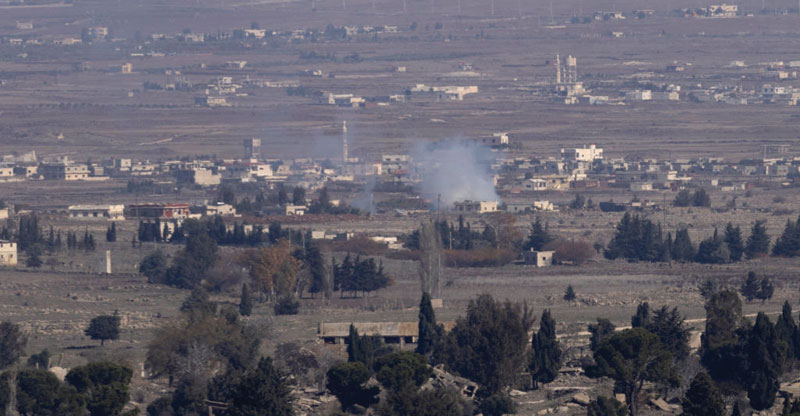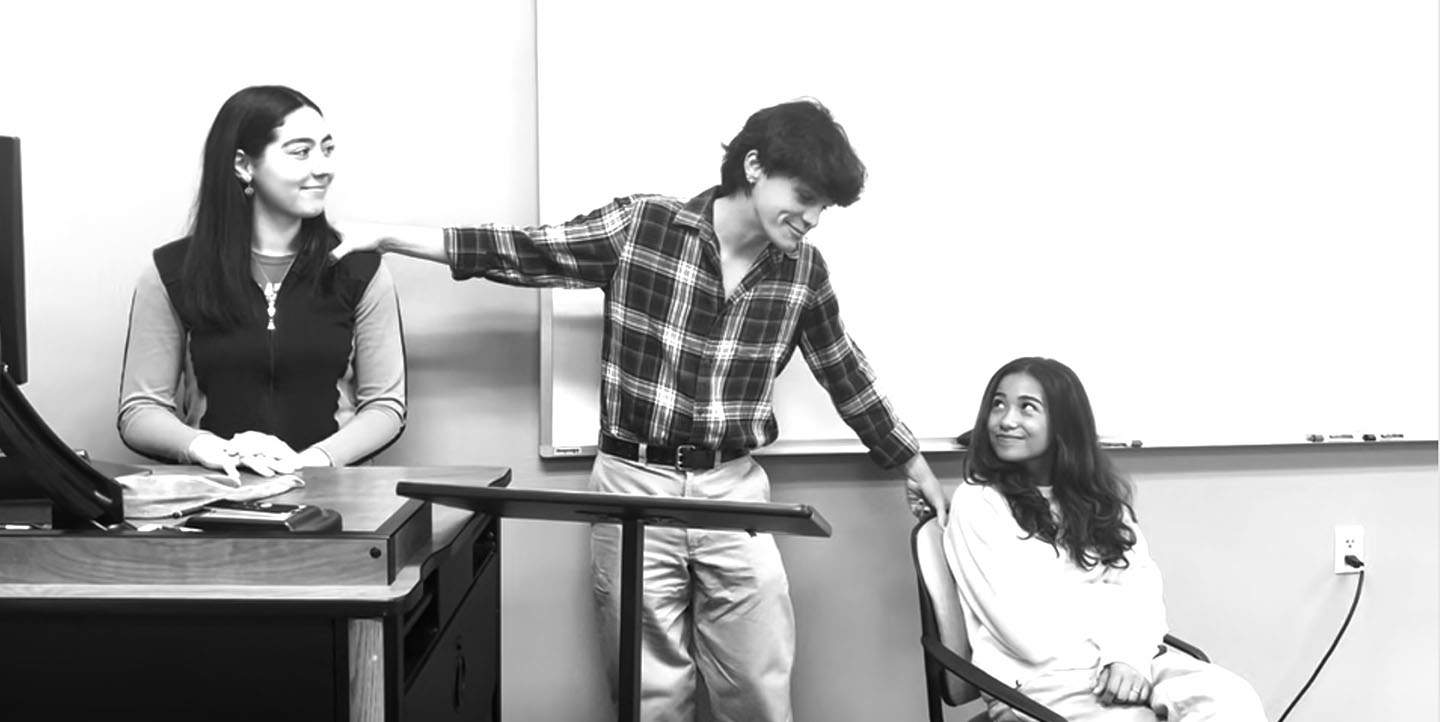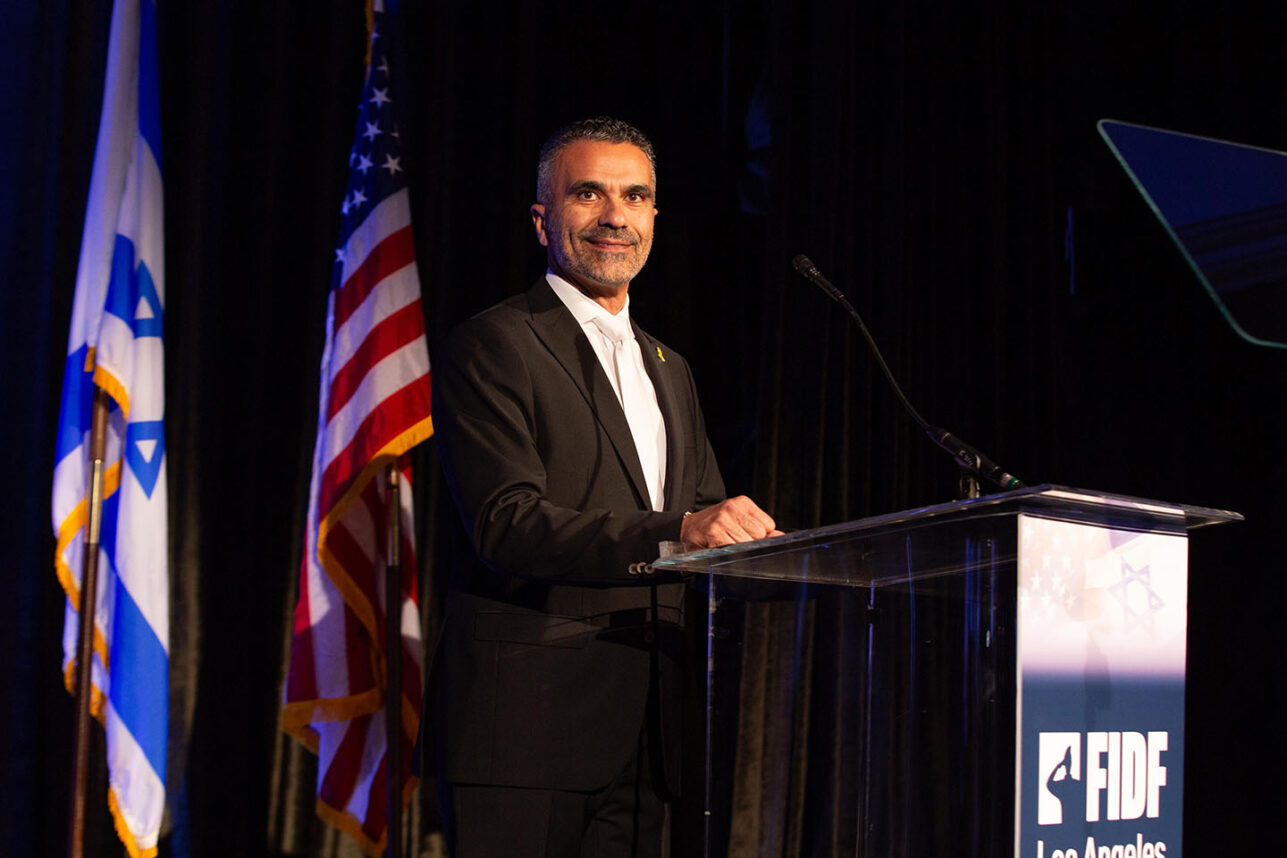It was one of the stranger events I’ve attended since I moved to the hood.
A friend sent me an e-mail telling me I “can’t miss” this Jerusalem rabbi’s one-man show Sunday night at Beth Jacob Congregation. I opened the e-mail a few minutes before show time, so, on a whim, I ran over to catch “The Four Faces of Israel,” starring Rabbi Benji Levene. After two hours of Benji, my head was spinning.
The show was a mock interview of four Jewish characters — a Charedi rabbi from Mea Shearim, a secular bus driver from Zichon Yaacov, a French artist living in Safed married to a non-Jew, and an American Zionist philanthropist living in Los Angeles — all played by Rabbi Levene. On this night, the interviewer was played by the evening’s master of ceremonies, one of the leaders of the Beth Jacob Congregation.
The characters were more like caricatures, and sometimes they were buffoons. The Charedi rabbi gave a little slurp and a burp, and proceeded to reinforce every possible Yiddish stereotype one might have about the insular Charedi world, with one caveat: Occasionally, out of the blue, he’d get up and give an impassioned defense of Charedim. We don’t do the army? Hey, Ben Gurion himself understood that “the Torah kept the Jews alive.” That’s why he gave us an exemption.
We don’t stand for a minute of silence to commemorate those who have died fighting for Israel? Why can’t we mourn the way the halacha (Jewish law) tells us to mourn?
After the interview, when the rabbi went backstage to change into his next character, the interviewer read a list of prepared questions for the audience: Who’s more likely to be living in Israel 100 years from now, a secular Jew or the rabbi? Who better represents authentic Judaism? Who’s more of a Zionist, the Charedi rabbi who lives in Israel, or the secular Jew who lives in the Diaspora?
It was clear that the questions had a pro-religion agenda — which was an omen of things to come.
The next three characters were also buffoons, but they were secular. The bus driver was an ultra-Zionist who fought in all the wars, and who wouldn’t mind “doing Kippur,” as long as nobody tells him when to do it. The French artist who had a non-Jewish wife and a non-Jewish son was a “cosmopolitan” who celebrates art, beauty and morality, and who thinks there can’t be another Holocaust because “all the artists of the world would get together and write a song.”
And the American philanthropist, who wore 100 pins and medals and said he visited Israel 226 times — this year — kept reminding us that he “doesn’t need the world to know that [he] gave $4.5 million to Israel this year, not to mention what [he] gave last year.”
It’s with these three secular characters that the show lost some credibility. After their interviews, instead of asking the audience questions that would encourage them to look at “the other side of the stereotype” — like they did with the Charedi character — the show continued to ask leading questions with a pro-religion agenda: Who’s more committed to living in Israel, the Charedi or the secular Jew? Who’s more committed to Judaism? Who will be more Jewish in the future?
This had a jarring effect.
Ostensibly, the idea of the show was to confront us with the exaggerations and unfairness of stereotypes, so that we could get beyond them and build mutual respect and unity among Jews. But the pro-religion bias kept interfering. It’s like the show was saying: “We respect every Jew, but we’d respect you so much more if you were more Torah-observant like us, and the Jewish nation would be so much better off.”
That may be true, but that kind of patronizing usually works only when you preach to the choir. If the show’s creators have designs on the wider Jewish world, they might consider taking a more even-handed and respectful approach to the secular characters.
Imagine, for example, if the show played up the idea that secular Jews already have a certain level of “Torah observance,” like when they visit sick people in the hospital, help the needy, protect the environment, resist gossip, fight for their country, donate money to charity, take care of their health, respect their parents and so on. In other words, instead of telling secular Jews that their lives are devoid of Jewish content, the show would invite them into a much bigger “Torah Tent,” one where they feel they already belong, and where they’d be more open to learn more about their Judaism. In this bigger tent, the charedis might even learn a thing or two.
In any event, when Rabbi Levene showed up as himself at the end of the show and poured out his soul in favor of loving every Jew, it was hard not to fall for him. This rabbi — grandson of the renowned Rabbi Aryeh Levin, known as the “Tzadik of Jerusalem” — is so passionate in his desire to bring Jews together, all you can do is root for him to succeed.
Maybe the reason my head was spinning after the show is that while I didn’t connect with the rabbi’s comedy, or even his strategy for unity, I fell for him anyway. I felt the love he had for everyone in the room, and I wanted to love him back.
The face that will stay with me in “The Four Faces of Judaism” was the fifth one, the one of the rabbi without make-up or costume.
On that face, one could see a simpler message: Sometimes it’s more important just to love, than to be funny or smart.
David Suissa, an advertising executive, is founder of OLAM magazine and Meals4Israel.com. He can be reached at dsuissa@olam.org.






















 More news and opinions than at a Shabbat dinner, right in your inbox.
More news and opinions than at a Shabbat dinner, right in your inbox.